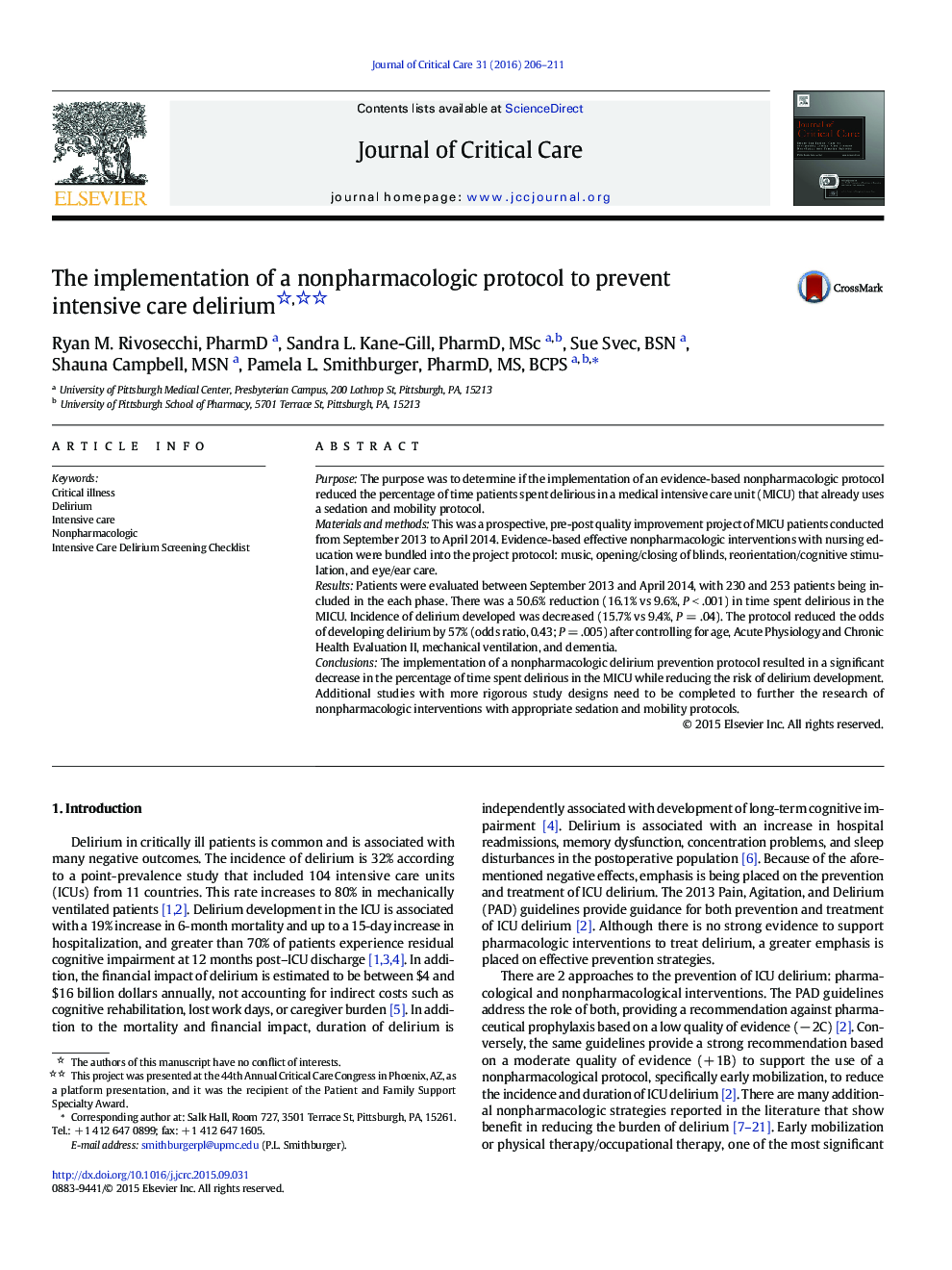| Article ID | Journal | Published Year | Pages | File Type |
|---|---|---|---|---|
| 5885068 | Journal of Critical Care | 2016 | 6 Pages |
PurposeThe purpose was to determine if the implementation of an evidence-based nonpharmacologic protocol reduced the percentage of time patients spent delirious in a medical intensive care unit (MICU) that already uses a sedation and mobility protocol.Materials and methodsThis was a prospective, pre-post quality improvement project of MICU patients conducted from September 2013 to April 2014. Evidence-based effective nonpharmacologic interventions with nursing education were bundled into the project protocol: music, opening/closing of blinds, reorientation/cognitive stimulation, and eye/ear care.ResultsPatients were evaluated between September 2013 and April 2014, with 230 and 253 patients being included in the each phase. There was a 50.6% reduction (16.1% vs 9.6%, P < .001) in time spent delirious in the MICU. Incidence of delirium developed was decreased (15.7% vs 9.4%, P = .04). The protocol reduced the odds of developing delirium by 57% (odds ratio, 0.43; P = .005) after controlling for age, Acute Physiology and Chronic Health Evaluation II, mechanical ventilation, and dementia.ConclusionsThe implementation of a nonpharmacologic delirium prevention protocol resulted in a significant decrease in the percentage of time spent delirious in the MICU while reducing the risk of delirium development. Additional studies with more rigorous study designs need to be completed to further the research of nonpharmacologic interventions with appropriate sedation and mobility protocols.
